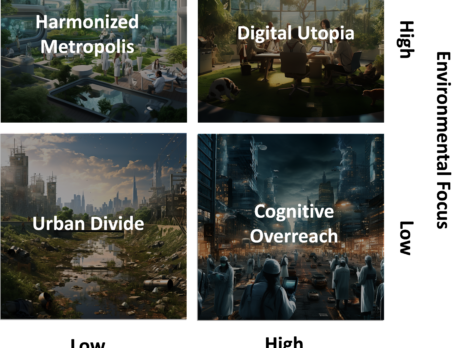In this study, we explored how major global trends like climate change, advanced technology, and globalization are shaping the future of medical education. Using Trinity College Dublin’s School of Medicine as a case study, we analyzed possible future scenarios to determine what skills and training will be most important for doctors in 2035. By imagining different futures, we identified ways to prepare medical education for challenges such as health inequalities, technological advances, and environmental changes.
What was the context of the study?
Medical education faces challenges from big global changes like climate change, advanced technology, and globalization. These “megatrends” affect how doctors work and how medical schools train them. We focused on Trinity College Dublin’s School of Medicine to explore how future medical training could adapt to these trends by 2035.
What did we do?
The team used “scenario analysis,” a method to imagine different future outcomes. We developed three scenarios based on two major factors: how much technology is integrated into healthcare and how much attention is paid to environmental care.
What did we find?
Each scenario offered unique insights:
- Base Case (Cognitive Overreach): Heavy reliance on technology, but it reduces personal connections in healthcare. Training must include human-centered care and mental resilience.
- Best Case (Digital Utopia): Technology and human empathy work together, improving healthcare globally. Students need training in advanced digital tools and ethics.
- Worst Case (Urban Divide): Cities thrive with high-tech healthcare, but rural areas are left behind. Education must address both urban and rural healthcare needs.
Why is it important?
This research helps medical schools prepare students for a rapidly changing world. It highlights the importance of balancing technology with personal care, addressing health inequalities, and teaching adaptability for future challenges.
Reference
Giunti, G., & Doherty, C. P. (2024). Futureproofing medical education through scenario analysis: Instrumental case study. In J. Mantas, A. Hasman, G. Demiris, K. Saranto, M. Marschollek, T. N. Arvanitis, I. Ognjanović, A. Benis, P. Gallos, E. Zoulias, & E. Andrikopoulou (Eds.), Digital Health and Informatics Innovations for Sustainable Health Care Systems: Proceedings of MIE 2024. IOS Press. https://doi.org/10.3233/SHTI240709

